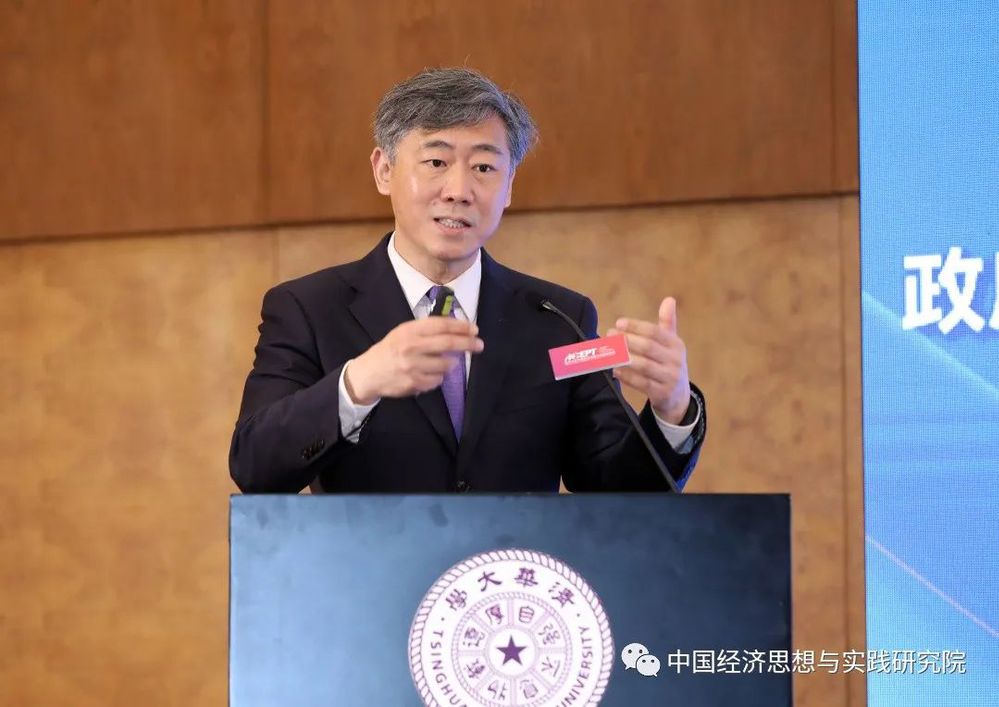David Daokui Li: Advancing discipline of government and economics a joint effort for international academic community
The following is a summary of David Daokui Li’s keynote address to attendees at the Fifth Conference of Government and Economics held at Tsinghua University, Beijing, on April 22, 2023. Professor Li is the Director of ACCEPT and the Co-President of SAGE.
On April 27, 2023, the Fifth Annual Conference of Government and Economics, co-hosted by the Society for the Analysis of Government and Economics (SAGE) along with Tsinghua University’s School of Social Sciences and the Academic Center for Chinese Economic Practice and Thinking (ACCEPT), was broadcasted online. The Co-President of SAGE and Director of ACCEPT, David Daokui Li, delivered welcoming remarks to attendees at the conference in a keynote speech.

In his keynote address, Director Li first delivered a progress report on the development of SAGE over the past five years since its founding. He said that the sole task for the Society is to promote research in the field of government and economics, while adhering to the values of openness and academic independence. In recent years, SAGE has continually expanded its membership, including significantly increasing the share of international members joining the Society, and has since become an associate member of the International Economic Association (IEA). The Society also established the Journal of Government and Economics, an international academic journal that has already made important contributions to a growing body of research. In view of these many accomplishments, Director Li extended his gratitude to Tsinghua University and its School of Social Sciences for the long-term guidance and support provided to both SAGE and ACCEPT, inviting everyone to keep paying close attention to the Society as it pursues further growth while promoting and advancing the discipline of government and economics.
He explained that the Chinese government has played a crucial role in China’s economic development over the course of the past four decades, with Chinese economic thought and practice having provided a direct impetus for the formation of a new academic discipline—namely, the field of government and economics. He expressed his hope that the research efforts undertaken in government and economics will provide a means to systematically summarize the experiences and lessons of the government and its role in pursuit of economic development in China, which can furthermore be disseminated and promoted worldwide.
Next, Director Li introduced the criterion for guiding research in the discipline of government and economics, which includes the “seven tenets” as follows: 1) the government is a direct participant in the modern market economy; 2) the behavior of the government is critical to the performance of a modern market economy; 3) the behavior of the government is an outcome of relevant institutions, and is neither coincidental nor random; 4) the tax system has a direct effect on government incentives; 5) the selection and promotion of officials has an important impact on government behavior; 6) the autonomy of the government affects its behavior; and 7) the field of government and economics is to adopt a research methodology based on “cases, theory and statistics” (CTS). The CTS methodology attaches importance to first acquiring a perceptual understanding from real-world cases, and then moving from this perceptual understanding to one based on empirical rationality by applying modeling approaches and statistical methods. He further expressed that advancing government and economics as an academic discipline cannot simply be a task left to Tsinghua University alone, but instead will require the joint efforts of universities across the country and even the wider global academic community. In looking forward to the future, he expressed his hope that everyone will join together to continue promoting the development of the discipline of government and economics.




